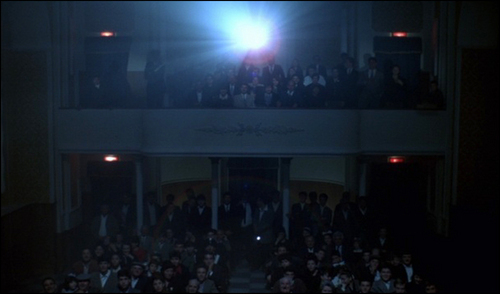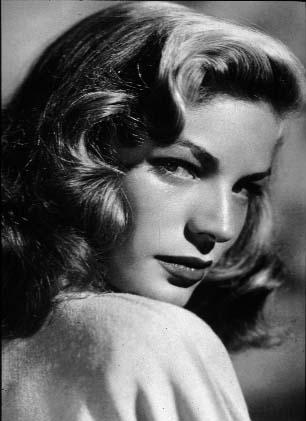[youtube LMsfogNky6w — click here to watch in full-screen HD]
A thousand years ago in Cairo, surrounded by ancient pyramids and the ghosts of lost civilizations, the great Arab scientist Alhazen conducted a peculiar optical experiment. Building on observations made by Aristotle thirteen centuries earlier, he first constructed a room, one completely shuttered from the light of the outside world, as dark as death. He then cleverly lit the space around the room with an array of bright lamps. Finally, he punched a single pinhole into one wall, just large enough to let a small beam of lamplight bleed in.
Alhazen confirmed that if you entered such a room, and sat in the darkness until your eyes had ample time to adjust, and then followed the beam of light emanating from the pinhole to where it splashed onto the wall opposite, you would be privy to an amazing, almost magical sight. As you watched, shapes and colors would begin to coalesce. Familiar forms would appear. And eventually, when your eyes had acclimated enough, you would be staring at nothing less than an exact upside-down projection of the outside world, perfect in every detail. Alhazen marveled at this, and gave the experiment an evocative name: Al-Bayt al-Muthlim, translated by later scribes into Latin as camera obscura — The Veiled Chamber.
In a sense, it was the very first movie theater.
A millennium after Alhazen, the world now brims with Veiled Chambers — tricked-out IMAX theaters with stadium seating, careworn revival houses, happily unkempt family rooms. Each plunges us into a darkling twilight that induces a spectacular hypnosis. Think about it: we’ve seen the likes of Kevin Costner, Meryl Streep, or Denzel Washington in countless films, we’ve watched them give interviews on television, we’ve read about them in tabloid exposés. We know, consciously, that they are actors. Fakes. Pretenders. And yet no sooner does the darkness engulf us than our logical, skeptical, twenty-first century minds shut down, allowing them to become a Civil War soldier, or a queen, or a mafia kingpin, or a globetrotting archaeologist. Over the course of two hours they pretend to fall in love, to risk their lives, to make and lose fortunes, to die. And somehow, through it all, we believe. We laugh, gasp, scream. We weep, with tears of genuine grief streaming down our faces. Only when cast back into the daylight does this madness pass, leaving only a bittersweet nostalgia as we realize that all the monsters and magic and galaxies far, far away were just so much hocus-pocus.
That, Dear Reader, is the essence of cinema (from the Greek kinēma — “motion”), and no other art form is as capable of such focused, vibrant, transformative power.
The power of cinema, I humbly propose, is at its peak when harnessed to the task of refreshing and strengthening our civilizational confidence — our deepest loves, our noblest aspirations, our cherished traditions, the beauty and poetry and truth of our language and songs, our regenerative myths, our moral certitudes, our martial might. Above all, the best films revel in shared humanity — that realm of pure feeling that soars far above politics, religion, race, age and gender, allowing us to commune with “the better angels of our nature.” By necessity, civilizations establish notions of perfection, of heroism, of worthy sacrifice, of right. To thrive, they must continually enforce and perpetuate these tenets through the medium of culture. The boundaries imposed by a strong culture act not as the walls of a prison but as the battlements of a fortress. Decorum, manners, styles of dress, the developed forms and structure of art — these serve the same purpose in a healthy civilization as the deadbolt on the front door of a house or the fence surrounding a backyard. They provide comfort, surety, self-possession. As such, they are an absolute good.
Alas, civilizations are also home to damaged and deranged people, twisted with bitterness and hate, who seek to become purveyors of what can only be described as cultural leprosy. Like any virus, they thrive wherever a civilization has succumbed to weakness, confusion, lawlessness, decadence, doubt. Incapable of real artistry, they resort to cruel acts of desecration and graffiti. A crucifix dipped in urine. A Madonna covered in feces. Songs that delight in scatology, rape, murder, fear, perversion. Movies that provide no sense of composition, sequence, or movement. Paintings that defy explanation or even description. Poetry bereft of form, meter, rhyme, or import. Criticism that warps meaning, denies standards, and condemns beauty. Left free to attack and spread, all of these things carve grievous wounds into a culture, breaking down the battlements of a civilization brick by brick. They are agents of anti-humanity, and their weapons are cancer, disease, and dissolution. While they can never be wholly eradicated, a healthy culture will fight these malevolent usurpations with the assured ruthlessness of a gardener ridding a prized flowerbed of poisonous weeds.
Ask yourself: what is the current state of our civilization? Of our culture? Are we awash in civilizational confidence? Or is our fortress crumbling and graffiti-littered and strangled by an ocean of weeds? If we set ourselves to pulling the weeds, what forgotten gardens might reveal themselves? What lost temples or treasures might be found? What senses of pride, glory, and strength might be enjoyed again? Most important of all, given the mission statement of this website: what part might cinema — that most powerful and hypnotic of art forms — play in rebuilding our cultural fortress and reestablishing a healthy and humane civilization?
In the words of Andrew Breitbart’s inaugural editorial here on this site: “Something has gone drastically wrong. . . Hollywood should return to its patriotic roots. . . [Until conservatives] recognize that (pop) culture is the big prize and that politics is secondary, there will be no victory in this important battle. . . We need to discover that spirit again.” The purpose of this blog series, For Conservative Movie Lovers, is to seek out those roots and that spirit, to make them relevant once again to modern conservative filmgoers, and to express a great many things regarding film and conservatism that I care about deeply — lonely, forgotten things that get precious little hearing in today’s high-octane, news-driven cultural arena, but which in the end constitute our only real protection against the darkness of cultural debasement and decay.
By way of achieving these goals, I have carefully selected a different film to represent each year from 1915-2009. Every Saturday here at Big Hollywood, my time and your interest permitting, I will introduce these pictures to you via rich, multimedia-enhanced essays. You will learn about the men and women who made each movie, and discover a cavalcade of actors destined to bring you countless hours of delight. You will learn something about cinematography, film music, costume design, dance choreography, and much else, becoming conversant with the names and careers of revered geniuses in each discipline. You will gain some knowledge of French cinema, German cinema, Hong Kong cinema. You will learn about what makes good criticism good, bad criticism bad, and why films do indeed need critics. Again and again you will be brought face-to-face with the old studio system, the facts and myths surrounding the “Golden Age” of American cinema, the infamous blacklists (both past and present), and many other things of high interest. All of this will be addressed from a conservative perspective and made relevant to the cultural battles of today.
Your mission, if you choose to accept it, is to follow along with each group of posts, then seek out the movie in question and watch it. And by that, I mean really watch it, with all of the things you have learned informing and enriching the viewing. If you have any pertinent observations or are otherwise so inclined, you can light up the COMMENTS section of each post with additional discussion and argument. I’ll also provide a vast assortment of links for further reading and viewing, so that if a particular director, genre, actor, or thematic idea seizes your imagination, you can travel down those side-paths as far as you like. Think of For Conservative Movie Lovers as a graduate course in film (taught by a conservative, wonder of wonders!) right here at Big Hollywood U.
My hope is that, by the end of this long march through cinematic history, I will have armed despairing conservative readers with the certitude that they are far from defeated in this sphere, that they are in fact the heirs to an immense store of cultural wealth. If a Hollywood conservative uses something they find here in their next film or performance, if someone at home passes a telling anecdote or story onto their kids, if people leave this series feeling inoculated against those who yearn to destroy them and everything they hold dear, and if they achieve a sublime elation regarding their history, heritage, and especially their cinema, I will consider the effort as time well spent.
For in the end cinema is, by its very nature, an intensely conservative medium. Look at the movies from any decade of the last century, and you’ll get an education in how people looked, spoke, dressed and thought. No amount of nanny-state whining can take the cigarettes out of their mouths, steal the oh-so-offensive words from their lips, or dissolve their humanity in the acid-bath of nihilism. They and the times in which they lived are conserved, free from fleeting and ever-changing notions of political correctness and censorship. This is good to see, because it preserves truth, in a form that glitters and glows like only the very best art can, as beacons of light and hope.
I’ll leave you for now with a quotation from the late critic and filmmaker Lindsay Anderson, whose magnificent treatise About John Ford bears heavily on the first film to go under our microscope, and indeed remains the most penetrating and moving defense of conservatism in cinema I’ve ever read. Attempting to explain the natural appeal of old movies, he wrote many decades ago that:
With all the brilliance, the intelligence and sophistication that goes into filmmaking today, with all the multiplicity of elaborate and costly techniques, there is still this lack of feeling, of emotional exposure and commitment. Which is one reason why, again and again, we return in our dissatisfaction (not just with nostalgia) to the great films of the past in which we can still feel “the freshness of the early world,” and from which we can still receive refreshment.
The freshness of the early world (a phrase originally penned by the poet Matthew Arnold, while describing the appeal of Wordsworth upon the latter’s death in 1850). I like it. Let us begin, then, to refresh ourselves at the well of great cinema by meditating on some great films, with an especial focus on their makers and their making.
Coming tomorrow, For Conservative Movie Lovers begins its journey into The Veiled Chamber with our first film.



COMMENTS
Please let us know if you're having issues with commenting.